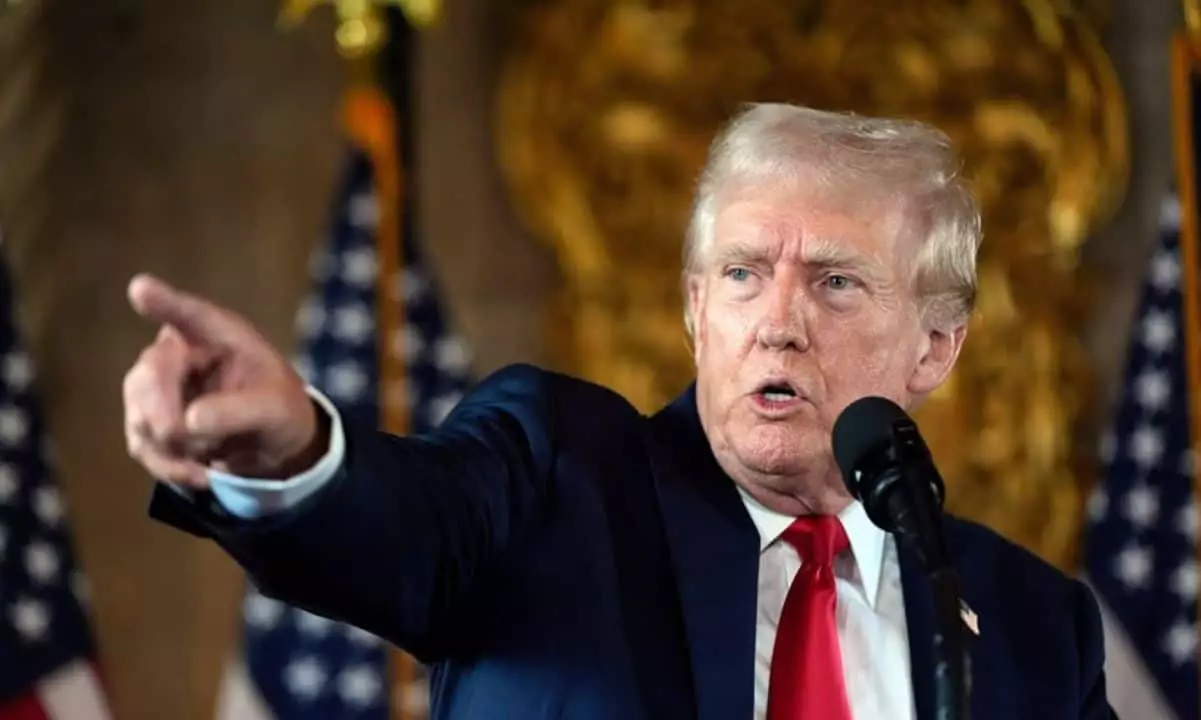The recent gathering at President Donald Trump’s golf club in Virginia has unearthed some unsettling realities about the convergence of politics and cryptocurrency. Hosted for the top holders of the TRUMP meme coin, this event raised alarms not merely for its ostentatious nature but for the ethical implications intertwined with it. The participation of billionaires and celebrities marks a glaring example of how financial clout can create exclusive political spaces, fostering environments ripe for undue influence. A shocking collective disbursement surpassing $394 million just to share a dinner table with the president elevates concerns of elitism and corruption to a whole new level, leaving one to wonder: what happens to democracy when access is monetized?
The Foreign Influence Dilemma
One of the most pressing concerns regarding this event is the overwhelming presence of foreign players within the crypto space, as suggested by blockchain data revealing that a majority of the attendees hailed from outside the United States. The implications of such involvement are profound and troubling. With many purchasing their TRUMP tokens through offshore exchanges, the vulnerabilities of the legal framework surrounding U.S. campaign finance laws become glaringly apparent. Could we see foreign entities reaping benefits through strategic investments in American politics, subtly undermining the very foundations of sovereignty? This points to a significant gap in regulatory oversight that must be addressed before it leads us to a crisis of confidence in our electoral integrity.
Red Flags and Ethical Quandaries
Ethics are in the spotlight in a manner that cannot be ignored. Criticism from various political figures underscores the emotional intensity surrounding the event. Representative Maxine Waters, senators Elizabeth Warren, and Richard Blumenthal have all vocally condemned the gathering, branding it an “orgy of corruption.” The reality here reflects deeper issues than just political rivalry; it reveals a growing distrust in leadership driven by the allure of quick financial gain overshadowing public integrity. The notion that politicians should not profit from digital assets is not merely practical but necessary to maintain a semblance of democratic accountability. The very idea that a dinner could serve as a gateway for foreign influence is dystopian, giving rise to fears of a future where policy is dictated not by the people but by the wealthy few.
First Amendment or Ethical Breach?
While legal inquiries loom and congressional members call for investigations, a crucial question remains: how do we delineate between permissible political engagement and potential ethical breaches? Trump’s defenders might argue that the event epitomizes the First Amendment rights to freely engage in business and politics. Yet, when financial investment directly determines political access, it creates a disheartening environment where the average voter’s voice is drowned out by millionaire interests. The attempt to normalize this blurred line reflects a moral decay within political processes, reminiscent of bygone eras where backdoor deals exchanged power for dollars.
Responses and Responsibilities
Amid mounting criticism, the White House remains adamant that Trump’s attendance was personal rather than policy-focused. Yet this explanation is insufficient considering he utilized presidential branding at the event, stirring both skepticism and inquiry. The stark absence of concrete new policies, combined with the very real ethical implications, calls into question the responsibility of those in power to act in the interest of their constituents rather than in a manner that seems primarily self-serving.
As we parse through the layers of this problematic relationship between politics and cryptocurrency, it begs the larger question: can we envision a future where the political sphere is freed from financial entanglements? The potential for corruption looms larger than ever when such significant financial transactions occur under the guise of political events. Ultimately, the real challenge lies in fostering a political landscape that prioritizes transparency and inclusivity over the allure of financial spectacle.
















Leave a Reply